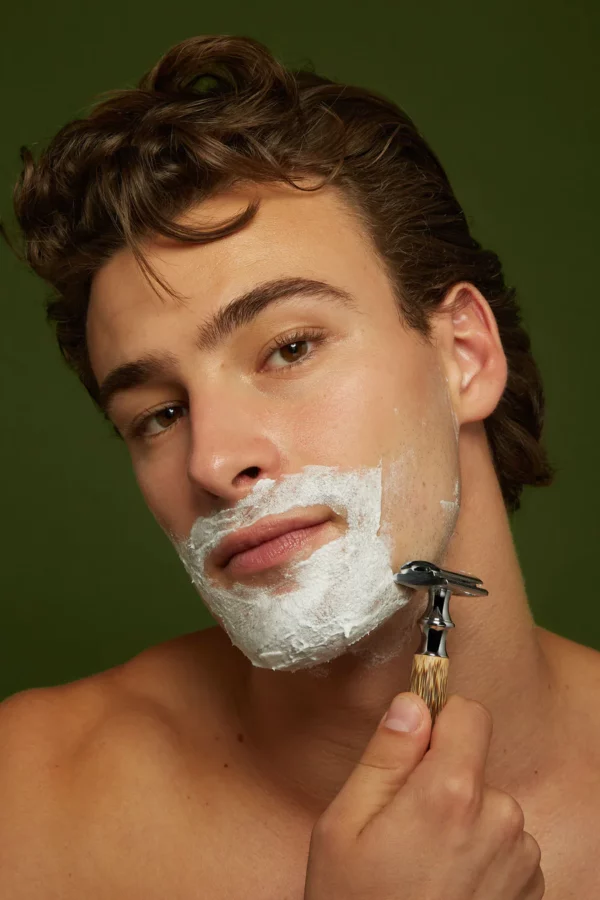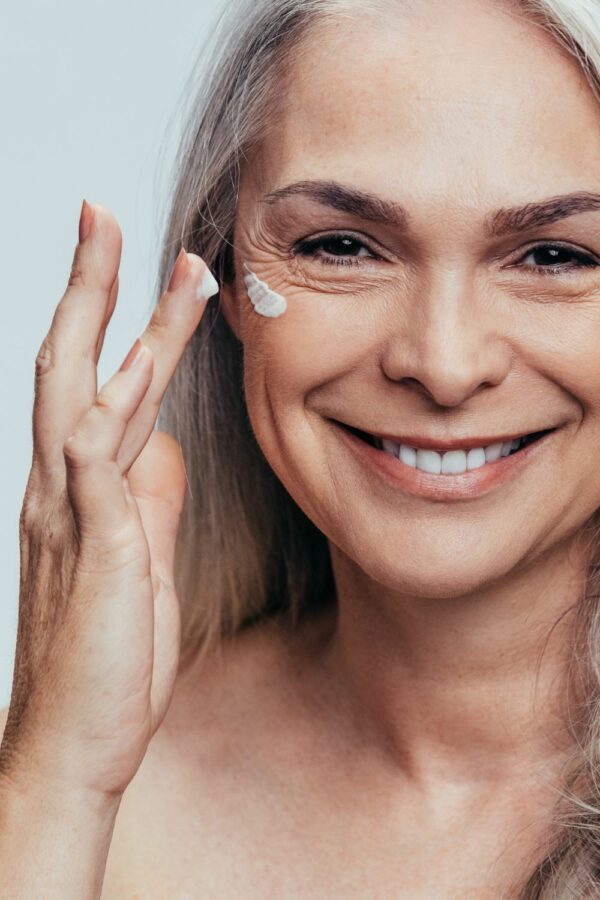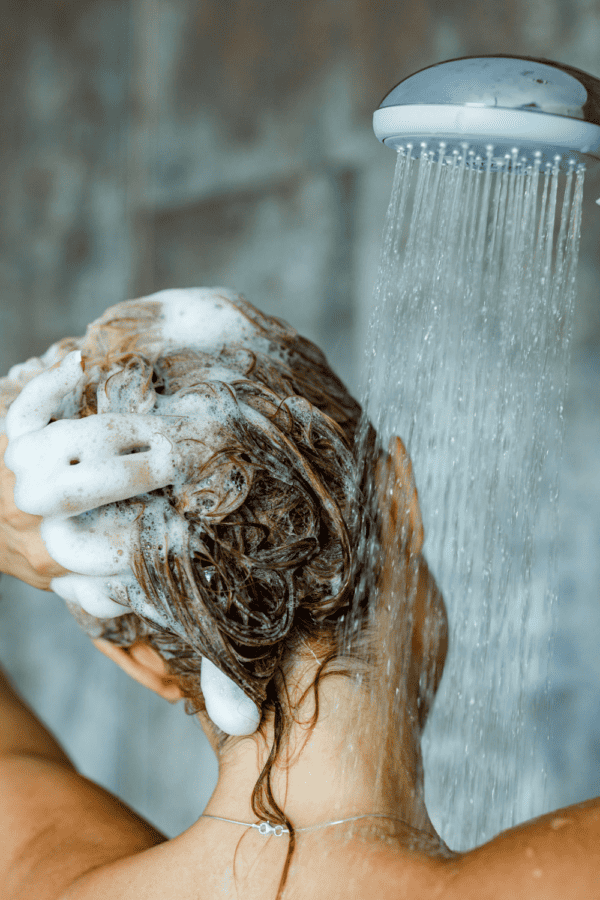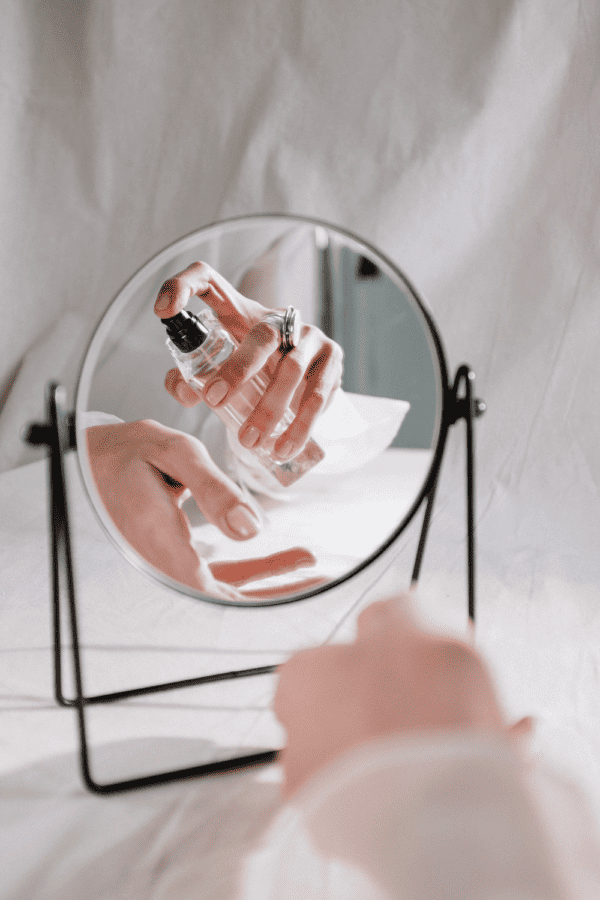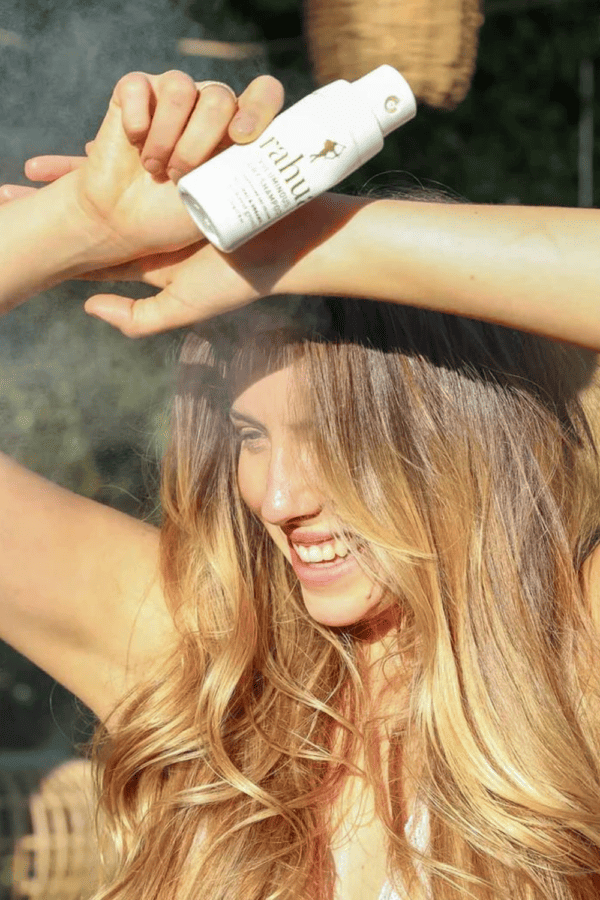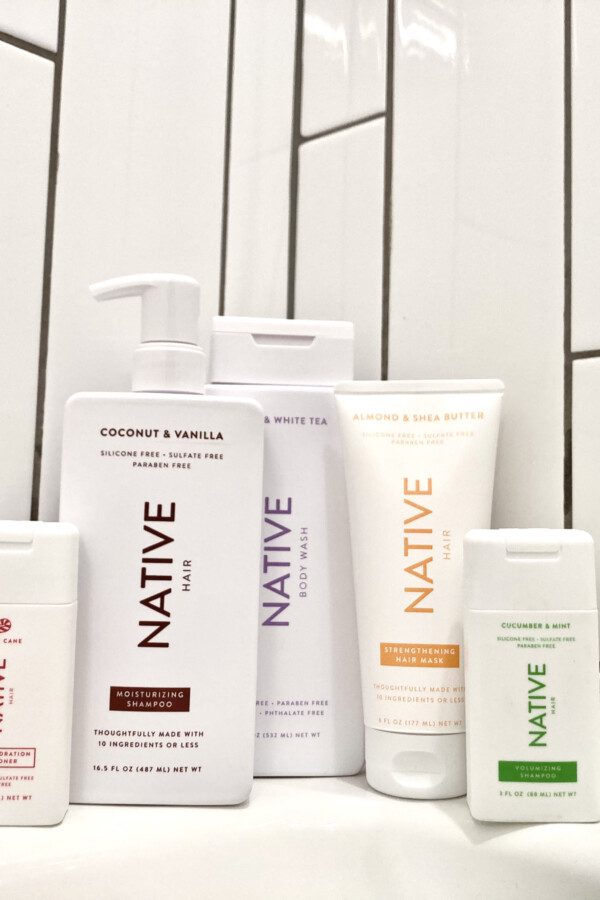In the age of consumerism, products are constantly being flashed before our eyes as the next quick fix to the issues we may not have even known we had! With a wide array of miracle creams, serums, and cosmetics at our disposal, it can be easy to overlook what lies beneath the surface of these products.
The reality is that many skincare and makeup products include hormone disruptors and other unsafe chemicals that are linked to health conditions from eczema to cancer and reproductive toxicity.
The skin is the body’s largest organ, and many chemicals can be absorbed through the skin and into the bloodstream. So while we may not be ingesting these chemicals the way we do food or water, they still have the potential to impact our health in profound ways.
So today, we’re diving into which toxic ingredients to avoid in skincare and cosmetic products, and then I’m going to share some tips for detoxifying your beauty routine.
Table of Contents
- Is Most Skincare Toxic?
- Common Ingredients To Avoid In Skincare
- Butylated Compounds
- Formaldehyde or Formaldehyde Releasers
- Fragrance
- Hydroquinone
- Mineral Oil
- Oxybenzone, Octinoxate, Avobenzone, and Homosalate
- Parabens
- PFAS
- Polyethylene Glycol, or PEGS
- Phthalates
- Resorcinol
- Sulfates
- How Do I Find Skincare Products Without Toxic Chemicals?
- How Do I Remove Harmful Chemicals from My Skincare Routine?
- My 7 Favorite Non-Toxic Skincare Brands
This article contains affiliate links, which means we may earn commission if you decide to make a purchase.

Is Most Skincare Toxic?
Many of the chemicals used in the marketplace have not been thoroughly tested for safety. They may have been verified to not cause something acute like a skin rash, but most have not gone through testing to see if they could cause or contribute to things like endocrine disruption or cancer.
It’s a common misconception that because something is sold on the shelf means it’s safe. That’s not necessarily the case.
We’re starting to make very small changes in the right direction. In late 2022, the US government signed the Modernization of Cosmetics Regulation Act of 2022 (MOCRA). This was the first time federal cosmetics law has been updated since 1938!
This bill makes a few positive updates to cosmetics regulation, but we still have a long way to go.
That’s why, if non-toxic beauty products and cosmetics safety are important to you, reading and understanding product labels is the best way to equip yourself for shopping.
Consumer demand has made a profound positive impact, too. As the demand for non-toxic and safe cosmetics grows, more and more brands are emerging onto the scene with non-toxic and high-quality skincare products. (And older brands are changing their formulations!)
So while there are many toxic skincare products on the market, there are still many safe options available nowadays!
Common Ingredients To Avoid In Skincare
You’ll want to proceed with caution in your personal care routine, whether you’re shopping for skin solutions, cosmetics, hair products, or even nail polish.
If you’re hoping to avoid harmful chemicals in your makeup and skincare routine, here are some of the toxins to keep an eye out for. These chemicals can potentially cause health implications like allergic reactions, developmental and reproductive toxicity, or other adverse health effects. Many of them are relatively easy to find on the ingredient label while others are more sneaky!
Related Articles:
Butylated Compounds
Often used to preserve the quality of personal care products, butylated hydroxytoluene (BHT) and butylated hydroxyanisole (BHA) can cause endocrine disruption and have the potential to affect the reproductive system. BHT is also linked to lowered potassium levels, inflammatory effects in the lungs, and enlargements in the liver.
Formaldehyde or Formaldehyde Releasers
Formaldehyde is a known cancer-causing agent that’s sometimes used as a preservative. Exposure to formaldehyde has also been shown to impact fertility. Although formaldehyde itself is not frequently used in cosmetics and personal care products, formaldehyde-releasing preservatives can often be found in personal care products.
This includes:
- quaternium-15
- diazolidinyl urea
- DMDM hydantoin
- imidazolidinyl urea
- polyoxymethylene urea
- sodium hydroxymethylglycinate
- bromopol
Over time, these chemicals release formaldehyde in small amounts (hence the name: formaldehyde releasing preservatives!).
Fragrance
“Fragrance” (which can also be listed on labels as “parfum”) is one of the most commonly used ingredients in skincare, cosmetics, and house cleaning products.
“Fragrance” can be misleading because cosmetic companies aren’t required to let the consumer know what’s in the fragrance on the ingredient label.
Fragrance ingredients can include a combination of chemicals and hormone disruptors that have been linked to cancer, fertility issues, birth defects, and other health concerns. Endocrine-disrupting phthalates, for example, are used to make scents in soaps and perfumes “sticky” so they last longer.
Youo may want to look for fragrance-free personal care products or ones that are scented with natural oils instead. (For some people, essential oils can cause skin irritations, so be aware of this if you have sensitive skin!)
If you do like to use scented products (many non-toxic and natural brands still use fragrance ingredients in their products!), just look for companies that transparently publish their full ingredient lists for consumers to easily find.
Hydroquinone
Hydroquinone is only available by prescription from a dermatologist and is often used in skincare to treat hyperpigmentation or scarring. This ingredient has been linked to cancer and organ toxicity.
Mineral Oil
Mineral oils such as paraffin, synthetic wax, and petrolatums can commonly be found in skincare or cosmetics. The threats posed by mineral oils are dependent on how they’ve been processed, however, they have been linked to cancer.
Oxybenzone, Octinoxate, Avobenzone, and Homosalate
Often used in sunscreen or SPF moisturizers, these synthetic UV filters are linked to skin irritation and hormone disruption. In addition to potentially threatening human health, these substances are harmful to marine life.
P.S. If you want to learn more about chemicals in sunscreen and safer brands, you can sign up to get our Safer Sunscreen Guide here:
Parabens
Parabens like methylparaben, butylparaben, propylparaben, and ethylparaben are commonly used as preservatives in personal care products to extend their shelf life.
Parabens are a potential endocrine disruptor and have been linked to breast cancer and tumors, impacted fertility, impacts on the developing fetus, and even anxiety and depression.
PFAS
These “forever chemicals” are not just used in your non-stick Teflon pans; they are unfortunately used in skincare and cosmetics for various reasons as well.
For example, trifluoroacetyl tripeptide 2 and polytetrafluoroethylene (PTFE) are commonly used in anti-aging products, probably to create a smooth finish.
They’re also used in waterproof makeup to make the water slide off without smearing.
These chemicals come with all sorts of problems, from cancer to reproductive harm and more.
To avoid intentionally-added PFAS in skincare and cosmetics, watch out for ingredients with “fluoro” in the name.
Polyethylene Glycol, or PEGS
PEGs and other “ethoxylated” ingredients are manufactured using 1,4 dioxane and ethylene oxide, and end products have been found to be contaminated with these two chemicals.
1,4 dioxane is listed as possibly carcinogenic by the IARC. Worse, ethylene oxide is a known carcinogen as well as an endocrine-disrupting chemical.
Ethoxylated ingredients are pretty difficult to avoid completely because they’re so common. So you’ll just want to minimize them when you can. The more conscious personal care brands put measures in place to prevent and/or test for contamination regularly.
Phthalates
As mentioned above, phthalates are commonly hidden under the “fragrance” ingredient. So you won’t find them explicitely listed on the ingredient label, even if they’re in the product.
These endocrine-disrupting chemicals are linked to breast cancer, fertility issues, pregnancy complications, and childhood developmental issues.
Resorcinol
This ingredient is most commonly found in hair dyes, but it’s also used in certain skin cleansers and acne products.
It is an endocrine disruptor that has been shown to alter proper thyroid function and is also a skin sensitizer and irritant.
Sulfates
Sulfates (like sodium lauryl sulfate, or SLS) are often used as a foaming agent to help create a lather in skin products like face washes or body washes.
Although most sulfates are not extremely problematic for most people, those with eczema or sensitive skin will probably want to avoid them when possible. Many sulfates are irritants that can cause contact dermatitis.

How Do I Find Skincare Products Without Toxic Chemicals?
Finding non-toxic skincare products isn’t as complicated as it may seem. Although being able to recognize toxic chemicals at first glance will give you an advantage, this isn’t necessary to keep your routine non-toxic.
The EWG (Environmental Working Group) Skin Deep Database is a great resource if you’re ever unsure about a specific product. The lower the score on the scale, the “cleaner” the ingredient list.
You can also browse the EWG Skin Deep Database to find new skincare or makeup products that you may want to try.
These resources from EWG aren’t perfect, but they’re still very helpful!
Shopping for non-toxic skincare doesn’t have to be limited to specialty stores, either. Many clean brands are carried at big-name department stores, drugstores, and makeup stores these days. Clearya is a great tool that helps you find safe products in stores like Target, Walmart, Amazon, and Sephora. They have a mobile app as well as a browser plug-in you can use when you’re shopping online.
Alternatively, you could try farmer’s markets or local health food stores often sell natural skincare products. This is a great way to support small businesses while protecting your health.
How Do I Remove Harmful Chemicals from My Skincare Routine?
You don’t need to do a complete overhaul of your cabinet or makeup bag when transitioning to non-toxic skincare products and cosmetics.
Here are some tips to make the switch to non-toxic products feel easier:
1. Start with the basics
Nowadays, it feels like skincare routines have become extremely complicated. If you’re wondering where to begin in detoxifying your skin routine, starting with the basics is a good way to tackle the majority of the problem. While serums and extra creams can be beneficial, consider simplifying your routine for a time and focus first on getting non-toxic everyday products (like cleansers and moisturizers).
2. Replace products as you run out
Like I said, you don’t need to replace your entire collection overnight. A less expensive way to update your personal care products is by replacing your products once they run out with a safer alternative.
This can also be beneficial in case your skin doesn’t love a specific formula. It will be much easier to pinpoint what changed in your regimen.
3. Opt for affordable brands
Shopping inexpensive non-toxic skincare and cosmetics doesn’t mean you need to sacrifice quality. If you’re looking to swap out more of your products at one time, a great way to save money is by finding more affordable brands that use high-quality, nourishing, non-toxic ingredients without breaking the bank.
My 7 Favorite Non-Toxic Skincare Brands
Choosing brands that are dedicated to only using non-toxic chemicals can take some of the legwork out of label-reading and allow for carefree shopping. While there are many non-toxic skincare brands out there, here are a few of my personal favorites if you’re looking for a starting point.
Whether you’re on the hunt for a new body wash, lip balm, or a whole new lineup of cosmetics, these brands all prioritize using non-toxic ingredients that won’t put you or your skin in harm’s way.
Attitude

Attitude offers personal care products like skincare and cosmetics as well as house cleaners, pet products, and baby products. Many of their products (though not all of them) are EWG-verified, cruelty-free, vegan, and dermatologically tested.
Honest
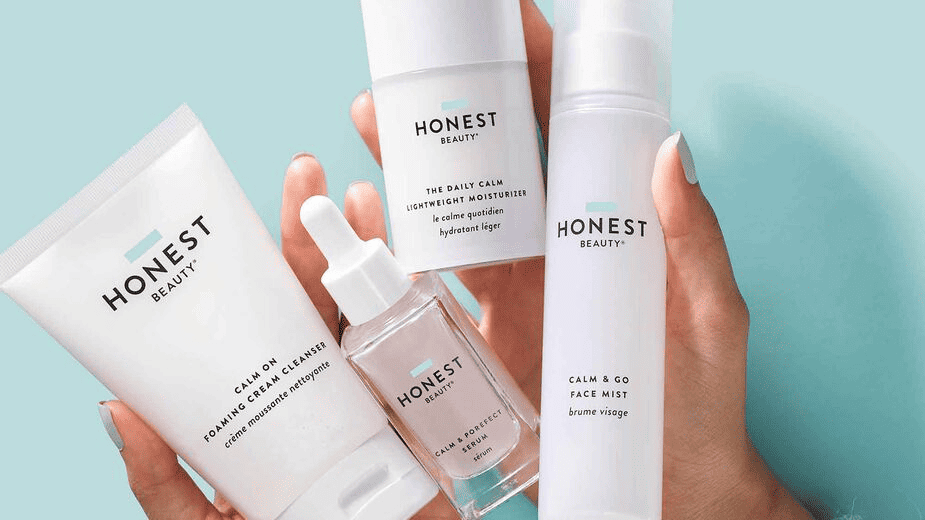
Honest is one of the most affordable and accessible non-toxic skincare brands… And they have a wide variety of products for folks to choose from, including cruelty-free skincare, makeup, baby products, cleaning products, and more.
They have a No List with over 3,500 chemicals that are banned from their products, promising safety and performance.
Check out our full review of Honest right here.
Beautycounter

This clean beauty brand carries high-quality skincare and makeup products for all skin types and concerns. They use only non-toxic and sustainably sourced, cruelty-free, natural, and safe synthetic ingredients. They have a Never List with over 2,800 chemicals that they vow to never use in their formulas. They’re a Certified B Corporation dedicated to reaching net-zero emissions by 2050.
Crunchi

This non-toxic skincare and makeup brand prioritizes safe, sustainable, cruelty-free, and effective products. They have a list of banished chemicals and their ingredient lists are carefully selected to create only safe, non-toxic formulas.
Juice Beauty
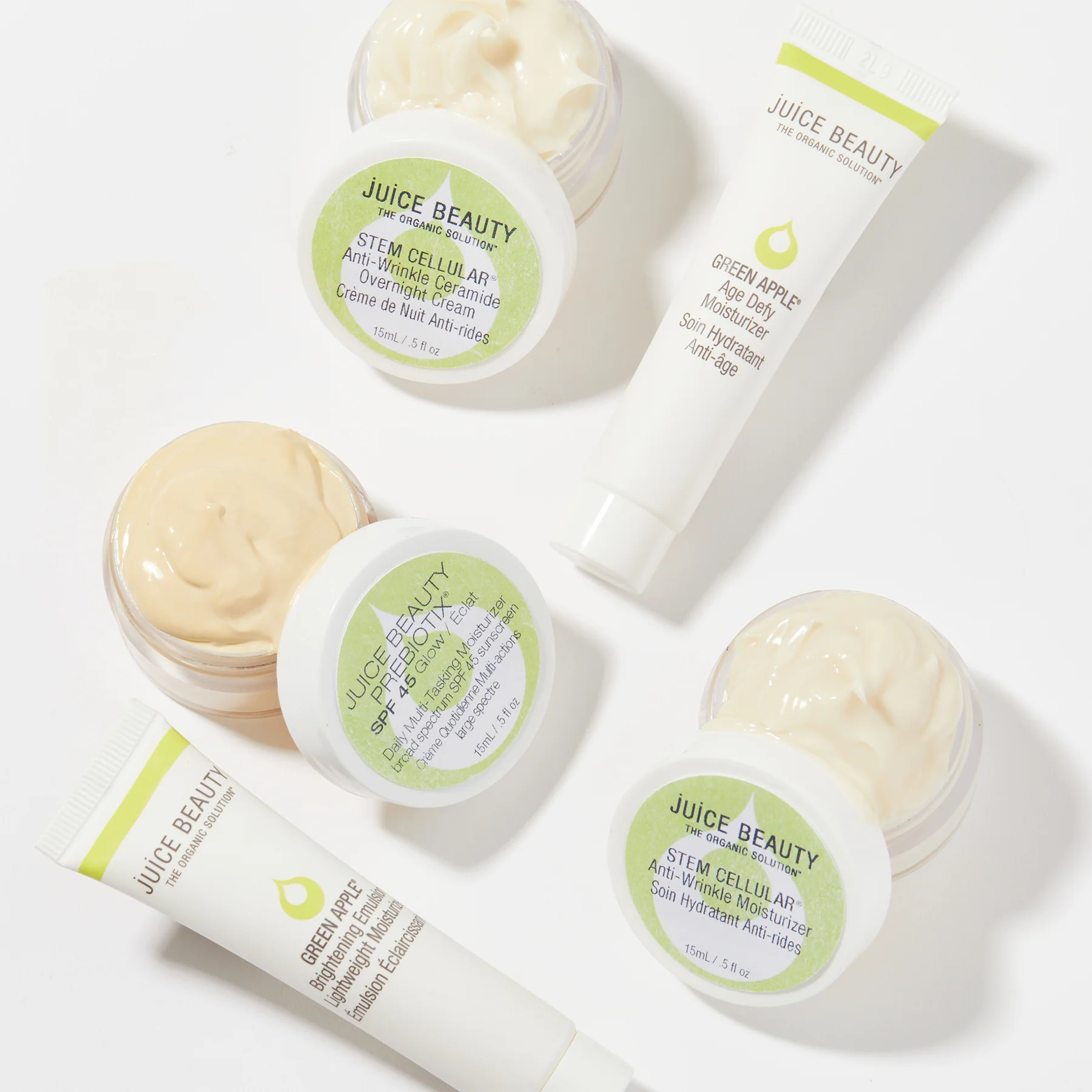
This “farm-to-beauty” skincare and cosmetic company is cruelty-free, sustainable, and formulated using only non-toxic and certified organic ingredients. They have an extensive unacceptable ingredient list with chemical ingredients that they’ll never use in their cosmetic products.
Pure Haven

Pure Haven is committed to using safe and impactful ingredients, including phthalates, formaldehyde-releasing preservatives, and the others listed above. They are women-led, cruelty-free, and backed by science to deliver high-performing results.
100% Pure
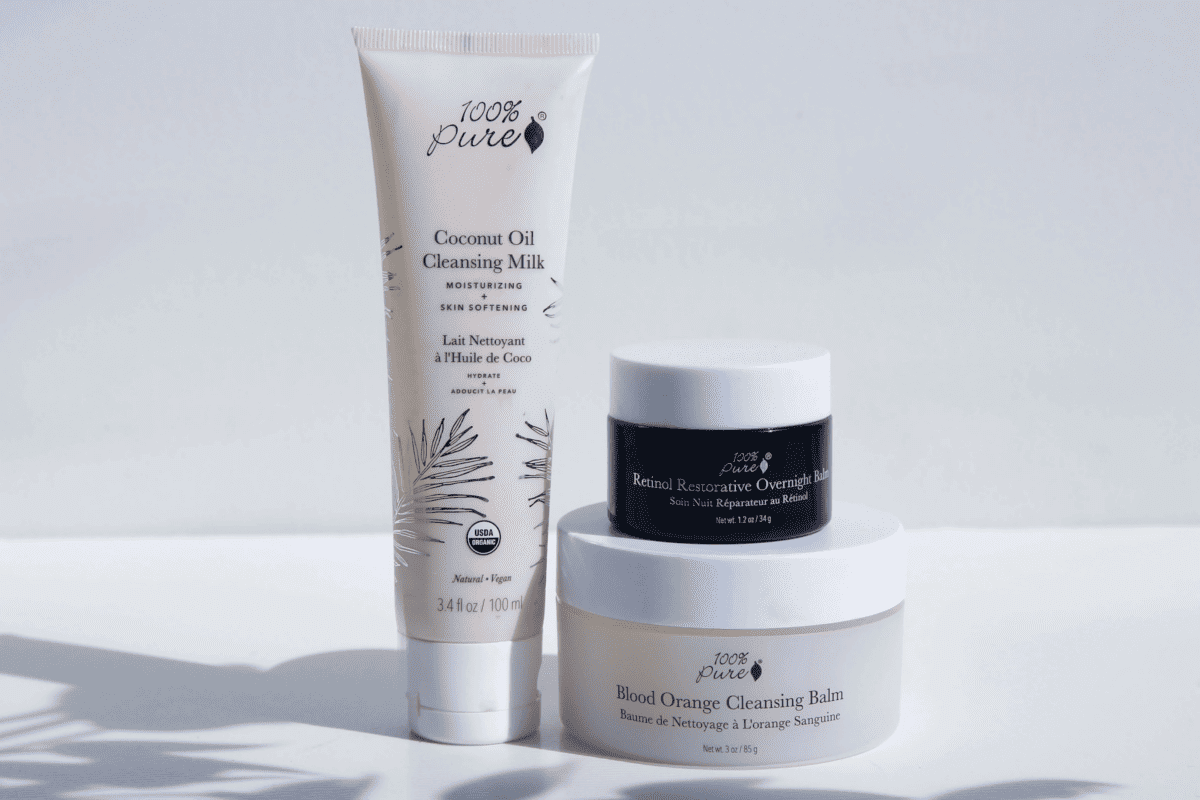
This makeup and skincare brand prioritizes natural, non-toxic cosmetic ingredients that are cruelty-free, naturally pigmented, and responsibly sourced.
They define natural as “an ingredient or formula composed of plant, mineral, and/or marine vegetation that undergoes chemical changes due to biological processes such as fermentation, distillation, and cold processing.”
No matter your skin type, the clean beauty industry continues to grow and offer more non-toxic skincare options. Opting for natural skincare is a great way to protect your skin and general health. With a wide range of products to choose from, building your skincare regimen using only non-toxic ingredients is completely possible. I hope this guide has helped you do that!
To get notified about new content, receive the latest headlines about environmental toxins in the news, and more exclusive content, sign up for Filtered Fridays!


